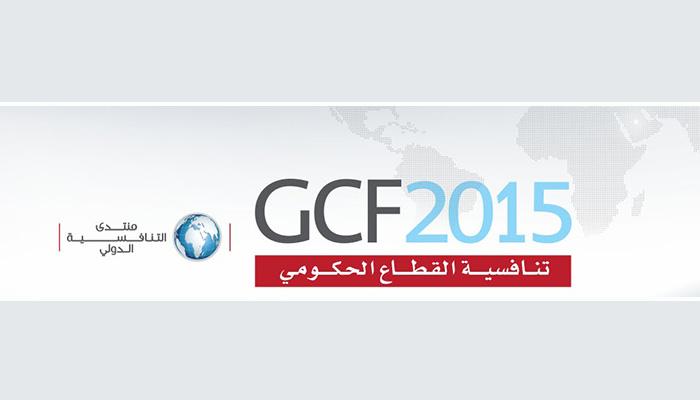
Google chief Eric Schmidt to visit Riyadh for the eighth Global Competitiveness Forum
Among the experts speaking at this year’s Global Competitiveness Forum is Eric Schmidt, the executive chairman of Google, who will be delivering a key note speech on the opening day of the Riyadh event, on 26 January.
The Global Competitiveness Forum (GCF) is the most important of the Kingdom’s annual economic and business meetings, a major event in regional and world terms. Since its debut, the primary focus of the gathering has been competitiveness, and throughout its history the GCF has had, and has a reputation for the high caliber of its speakers and panelists.
This year is no exception, with Eric Schmidt joining international political and business leaders, Saudi government ministers and academics, to discuss competitive government and developing a world class infrastructure in Saudi Arabia.
Having joined Google in 2001, Eric Schmidt helped grow the company into a global leader in technology. As executive chairman, he is responsible for the external matters of Google: building partnerships and broader business relationships, government outreach and technology thought leadership, as well as advising the CEO and senior leadership on business and policy issues. From 2001-2011, Eric served as Google’s chief executive officer.
Prior to joining Google, Eric held leadership roles at Novell and Sun Microsystems, Inc. He holds a bachelor’s degree in electrical engineering from Princeton University as well as a master’s degree and PhD in computer science from the University of California, Berkeley. He is a member of the President’s Council of Advisors on Science and Technology and the Prime Minister’s Advisory Council in the UK.
He is the co-author of The New Digital Age and How Google Works, and serves on the boards of the Economist Group, the Mayo Clinic, and Khan Academy.
Founded in 2006 by the Saudi Arabian General Investment Authority (SAGIA), the GCF has grown into one of the largest and most important annual gatherings of academics, business leaders, politicians and journalists in the region.
The Global Competitiveness Forum (GCF) is the most important of the Kingdom’s annual economic and business meetings, a major event in regional and world terms. Since its debut, the primary focus of the gathering has been competitiveness, and throughout its history the GCF has had, and has a reputation for the high caliber of its speakers and panelists.
This year is no exception, with Eric Schmidt joining international political and business leaders, Saudi government ministers and academics, to discuss competitive government and developing a world class infrastructure in Saudi Arabia.
Having joined Google in 2001, Eric Schmidt helped grow the company into a global leader in technology. As executive chairman, he is responsible for the external matters of Google: building partnerships and broader business relationships, government outreach and technology thought leadership, as well as advising the CEO and senior leadership on business and policy issues. From 2001-2011, Eric served as Google’s chief executive officer.
Prior to joining Google, Eric held leadership roles at Novell and Sun Microsystems, Inc. He holds a bachelor’s degree in electrical engineering from Princeton University as well as a master’s degree and PhD in computer science from the University of California, Berkeley. He is a member of the President’s Council of Advisors on Science and Technology and the Prime Minister’s Advisory Council in the UK.
He is the co-author of The New Digital Age and How Google Works, and serves on the boards of the Economist Group, the Mayo Clinic, and Khan Academy.
Founded in 2006 by the Saudi Arabian General Investment Authority (SAGIA), the GCF has grown into one of the largest and most important annual gatherings of academics, business leaders, politicians and journalists in the region.
Share:
ADD TO EYE OF Riyadh
MOST POPULAR
UAE automotive aftermarket to reach US$1.91 billion by 2028, with SE Asian companies playing pivotal role
Sunday 10 November, 2024 9:29du announces plans to power SME productivity supported by Microsoft
Sunday 10 November, 2024 9:33SingleView Strategically Partners with Thiqah at Seamless Saudi 2024 to Transform Corporate Banking Services
Sunday 10 November, 2024 12:13Abu Dhabi to showcase expertise in genomics at American Society of Human Genetics 2024 Annual Meeting in Colorado
Sunday 10 November, 2024 9:24KAOUN International and MODON Announce WAM Saudi Expo 2025: Catalysing Saudi Arabia's Industrial Future
Monday 11 November, 2024 1:17 ×



























